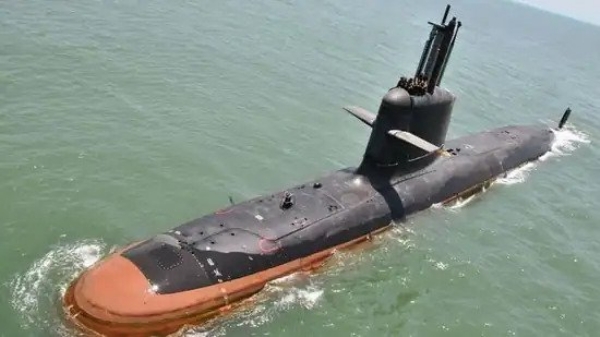DRDO tests new Air Independent Propulsion system to be fitted in Scorpenes submarines
Total Views |
New Delhi, Mar 11: Scripting a history, the Defence Research and Development Organisation (DRDO) successfully carried out the final test of the land-based prototype of the Air Independent Propulsion (AIP) system in Mumbai. This will allow Indian Navy submarines to operate for up to two weeks without having to surface to recharge their batteries.

“The (AIP) plant was operated in endurance mode and maximum power mode as per the user requirements. The system is being developed by Naval Materials Research Laboratory (NMRL) of DRDO,” announced the Ministry of Defence (MoD) on Tuesday.
Also Read: Indigenously-built INS Karanj commissioned into Indian Navy
It should be noted that NMRL will field its indigenous AIP only by 2023-24. This comes as the six new submarines is tendering in a Rs 45,000-crore programme called Project 75-I that the navy will be ready by that time. The DRDO’s AIP system, once ready, will from 2024-25 onward, be “retrofitted” into six Scorpene submarines that are being built in India under Project 75.
“AIP has a force multiplier effect on the lethality of a diesel-electric submarine as it raises the submerged endurance of the boat, several-fold. Fuel cell-based AIP has merits in performance compared to other technologies,” said the MoD.
Also Read: DRDO successfully tests fires SFDR technology to develop long-range missiles
Fuel cell technology-based AIP generates power through the reverse electrolysis of oxygen and hydrogen. In this process, the two elements chemically combine, thereby generating electricity to charge the submarine’s batteries. This process does not need air, but requires storage of highly inflammable hydrogen on board. This is not true of the DRDO’s AIP system, which relies on the innovative Phosphoric Acid Fuel Cell technology.
Also Read: DRDO conducts successful launches of VL-SRSAM developed for Indian Navy
This process is more rugged, tolerant of fuel impurities, offers longer life and efficiency, and is much safer, since it does not require hazardous Hydrogen to be stored on board.
“While there are different types of AIP systems being pursued internationally, fuel cell-based AIP of NMRL is unique as the hydrogen is generated onboard. The technology has been successfully developed (by NMRL), with the support of industry partners Larsen & Toubro and Thermax. It has now reached the stage of maturity for fitment into target vessels,” said the MoD.